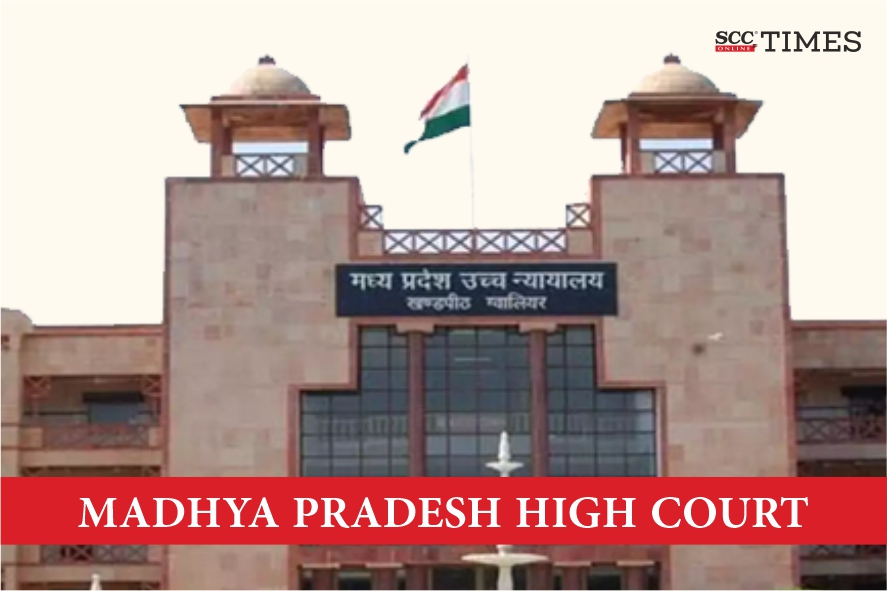Madhya Pradesh High Court: In a Miscellaneous Petition filed under Article 227 of the Constitution of India challenging the impugned orders passed by the Tahsildar, Seoni Malwa, and Additional Collector, Narmadapuram, with respect to mutation and partition proceedings in a land dispute, a single-judge bench of G.S. Ahluwalia, J., reaffirmed its previous directive concerning the mutation and clarified that no partition order had been issued. The Court further directed revenue officers to undergo six-month training period, after they misconstrued the High Court’s previous order and stated that “they could not understand the orders passed by the High Court”.
Factual Matrix
In the instant matter, the petitioner filed a Miscellaneous Petition under Article 227 of the Constitution of India was filed against the order dated 27-02-2024 by the Tahsildar, Seoni Malwa, which directed the Patwari to restore the status quo and propose partition and order dated 18-04-2024 by the Additional Collector, Narmadapuram, which upheld the Tahsildar’s order. The dispute arose from earlier mutation proceedings and orders.
A decree was passed that only declared the title of the parties but did not include a decree for partition. The High Court vide order dated 25-09-2023 directed the Tahsildar to reconsider the application for mutation in light of 1976 compromise decree and to disregard previous mutation orders. Despite the High Court’s directive focusing solely on mutation, the Tahsildar directed an application for partition.
Moot Point
-
Whether the Tahsildar acted within the scope of the High Court’s directive by initiating partition proceedings instead of reopening the mutation file?
-
Whether the Additional Collector’s dismissal of the revision was valid and whether the actions of the Tahsildar and Additional Collector were influenced by extraneous considerations?
Parties’ Contentions
The petitioner argued that Tahsildar had erroneously entertained a fresh application for partition despite a pending civil suit and had not followed the High Court’s directions regarding the previous case. The petitioner contended that the Additional Collector’s decision was arbitrary and did not address all grounds raised in the revision petition.
The petitioner contended that the Collector improperly wrote a letter directly to the Court requesting exemption from personal appearance and deemed the action unjustifiable. The petitioner contended that the Collector’s presence was initially sought to provide insights regarding the responsibilities and actions of the revenue officers under her but instead of appearing personally, the Collector wrote directly to the Court requesting exemption from personal appearance, thereby bypassing proper channels. The petitioner further argued that the Additional Collector’s conduct regarding submitting a letter directly to the Court, which was already opened and read before submission, is contrary to the expected procedure and raised concerns about the respect for Court procedures.
However, the State supported the actions of the Tahsildar and Additional Collector, arguing that their decisions were in accordance with law.
Court’s Analysis
The Court note that the High Court had only directed the review of the mutation application in accordance with the compromise decree, not for partition. The Court stated that Tahsildar’s initiation of partition proceedings was contrary to the High Court’s order. The Court asserted that the Tahsildar should have reopened the existing file rather than registering a new case. The Court stated that Tahsildar’s and Additional Collector’s actions appear to be based on a misunderstanding or misinterpretation of the High Court’s orders.
The Court stated that there were indications that the orders passed by the Tahsildar and Additional Collector might have been influenced by extraneous considerations, as they did not adhere strictly to the High Court’s directions and were dismissive of relevant objections.
Collector’s and Additional Collector’s Conduct
The Court stated that it was inappropriate for the Collector to directly write to the court as it bypasses the proper legal channels and protocol. The Court condemned the act of the Collector’s act, emphasising that the same undermines the Court’s authority. The Court directed the Chief Secretary, State of Madhya Pradesh, to take necessary action against the Collector for this misconduct.
The Court also criticized the Additional Collector for attempting to directly influence the Court by handing over an opened envelope. The Court stated that the Additional Collector’s conduct shows a lack of respect for the Court’s authority and ordered the Chief Secretary to review the Additional Collector’s eligibility for his current position.
Training and Supervision
The Court noted that during the course of personal hearing, both the officers submitted that they could not understand the orders passed by the High Court which were upheld by the Supreme Court. The Court opined that the respondent officers’ inability to understand court orders and legal protocols indicates a need for extensive training and supervision to ensure proper administration of justice.
The Court directed both the Tahsildar and the Additional Collector to undergo a six-month training program to improve their understanding of judicial and quasi-judicial responsibilities. The Court also prohibited them from exercising quasi-judicial and magisterial powers for one year, subject to review after their training and supervised work period. The Court ordered that these directives be recorded in the service records of the officers involved and a report be submitted by 30-08-2024.
Court’s Decision
The Court reaffirmed its previous directive concerning the mutation and clarified that no partition order had been issued. The Court found Tahsildar and Additional Collector to have acted outside their jurisdiction and instructed them to follow the Court’s directives properly.
The Court quashed the Tahsildar’s order dated 27-02-2024 and the Additional Collector’s order dated 18-04-2024 and directed the Tahsildar to reopen the case file and decide the same in accordance with the High Court’s directions in order dated 25-09-2023.
[Pradeep Kumar v. Agarwal Nitin Agarwal, 2024 SCC OnLine MP 5049, Decided on 26-07-2024]
Advocates who appeared in this case :
Shri Siddharth Gulatee, Counsel for the Petitioner
Shri Ishteyaq Hussain, Counsel for the Respondent No. 6
Shri Swapnil Ganguly, Deputy Advocate General, Counsel for the Respondent/State







